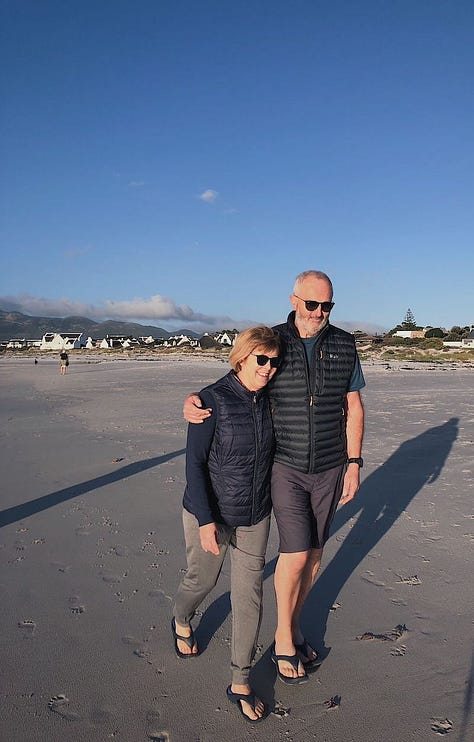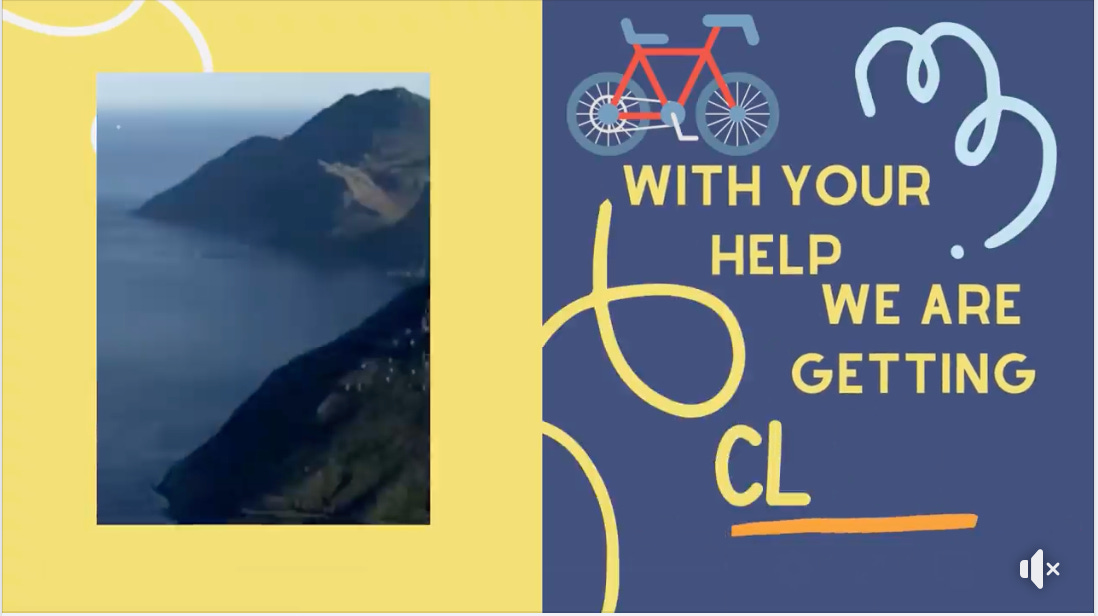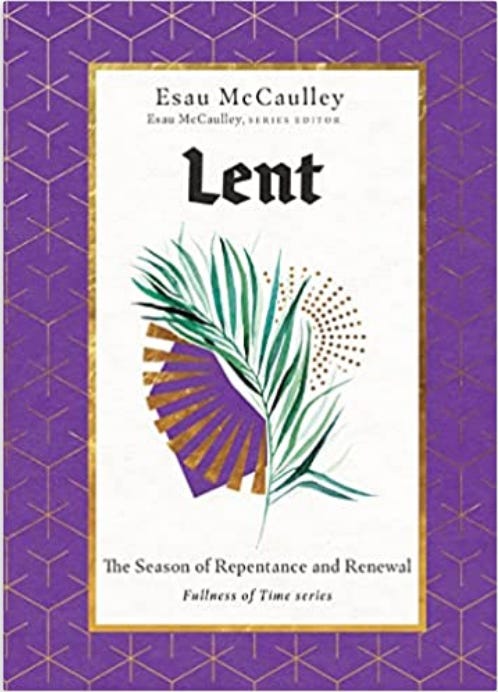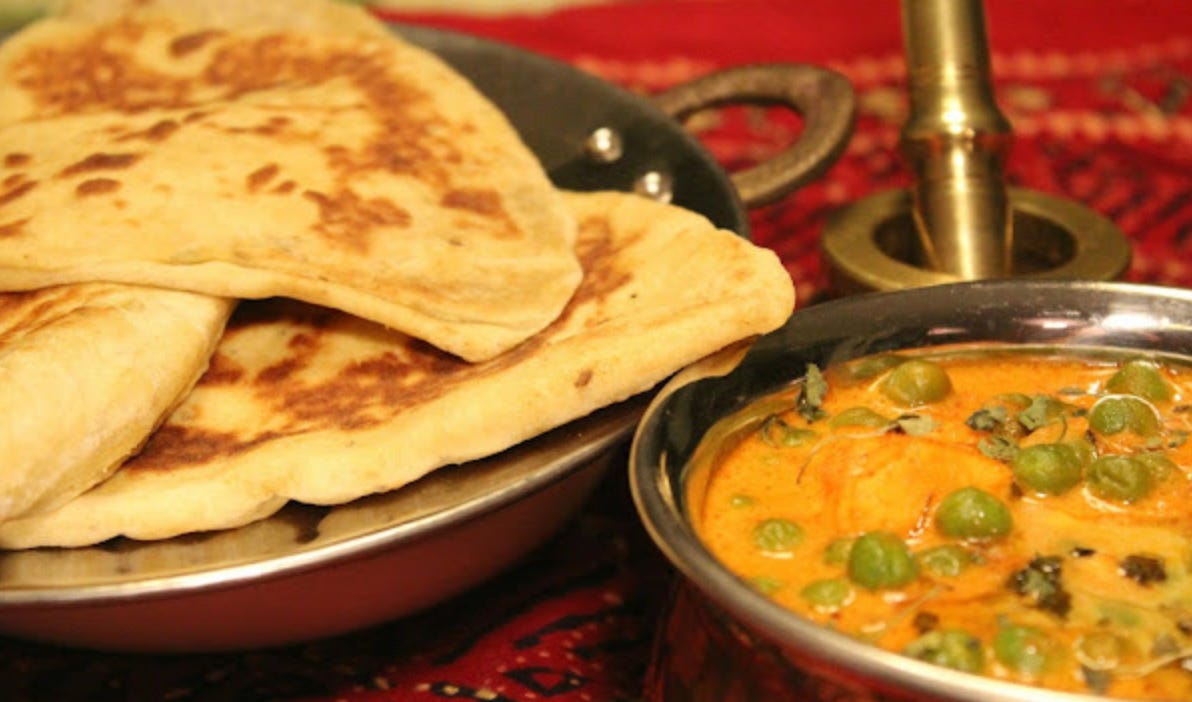The Lectio Letter - Issue #64 - Lent teaches us how to live in the tension of a cross-pressured Christianity
“Lent is a time for discipline, for confession, for honesty, not because God is mean or fault- finding or finger-pointing but because he wants us to know the joy of being cleaned out, ready for all the good things he now has in store.”
―N.T. Wright
“...the liturgical traditions of the Church, all its cycles and services, exist, first of all, in order to help us recover the vision and the taste of that new life which we so easily lose and betray, so that we may repent and return to it.”
—Alexander Schmemann
“The self-denial involved in the period of Lent isn’t about just giving up chocolates or beer; it’s about trying to give up a certain set of pictures of God which are burned into our own selfish wants.”
—Rowan Williams
Jesus fasted 40 days in the wilderness so that he could be with us on that journey.
He came close to the sorrowing disciples on the road to Emmaus and asked them to share their grief so that eventually he could become known to them in the breaking of the bread, and he comes close to us and ask us also to open our hearts.
—Malcolm Guite
“It seemed to us that we’d never thought of him before as a man who would die. He never had thought of himself in that way. Until that year, although he’d cursed his weakness and his age, he’d either ignored the idea of his death or had refused to believe in it. He’d only thought of himself as living.”
―Wendell Berry, Nathan Coulter: A Novel
The ashes on our forehead remind us that even as we continue our slow march towards death, we serve the one who has already defeated the enemy that stalks us.
— Esau McCaulley, Lent
Welcome to Issue # of the Lectio Letter. This members-only newsletter is filled with music, film and food suggestions, links, and an article written by yours truly.
PSA: I’ve heard a number of people have been missing out on the whole email if they use Gmail because the email gets ‘clipped’.
You can see at the bottom of the email if it says “message clipped”, then click “View entire message” to see it all.
You are not getting it all if you don’t see my signature at the bottom.
Alternatively, if you don’t want to read this in your email, you can use the substack app (where you can listen to the article read out) or read it online at LectioLetter.com
Whether you become a paid subscriber or not, I’m very grateful to each of you who read, share and respond to this newsletter.
Introduction
This time, we’re talking about Lent. As I mentioned in the article below, for many the very word Lent conjures guilt-ridden sighs even before we begin.
But far from being a season for earning some kind of “Spiritual brownie points” through fasting and flagellation, Lent along with the rest of the Christian Calendar is a way to enter, year after year, the story of Jesus as the story of the Bible as the story of the world. We enter into the telling of time through the story of God in such a way that our own lives become increasingly submersed in a baptism of the reality of God.
Issue #6 of the Lectio was written for Lent and although I didn’t read it before I wrote this one I was surprised at the level of overlap. Almost 60 issues later, almost none of you reading this now were subscribers so I thought it was worth writing something new about something old.
In the opening quotes above I included a section from Wendell Berry’s first novel, Nathan Coulter which I read (listened to) these past couple of weeks. It touches on the theme of Lent which is memento mori, to remember our deaths. The wisdom of Solomon encourages us to remember our deaths as a way of gaining wisdom and Berry picks up on the human tendency to put it as far out of sight as we can until we can no longer.
In 2017 I wrote a daily lent devotional for the M.A. in Christian Formation students which you can look through here. In those devotionals, I found music and visuals I thought were helpful in the season of lent.
Lent Devotional Music Playlist on Youtube (Thanks to Jason for reminding me to include youtube links as I know not all of you can listen through Spotify)
Free 7 days for Free Subscribers
For those of you who are free subscribers, you’ll find a paywall about halfway through the article, but the good news is you can sign up for a 7-day free trial through the button below to read the whole thing as well as unlock and read any of the 63 previous articles.
What you said was… confusing
In the last Lectio, I experimented with a substack poll to see if this (admittedly lengthy) format should be changed. Just short of 60% of those that responded prefer the long email.
But when it comes to breaking articles into two parts it was similarly split between including a part 2 in one long email or sending it the following day.
Given how split the votes were… I think things will remain as they are for now. But I always enjoy your feedback in comments or replies to this email.
Status Board
Life
We’ve enjoyed having Rachel’s parents in town as we prepare for the Cape Town Cycle Tour.



We’re So grateful to announce we are 35% of the way to our fundraising goal. Watch our latest video update below… or this one of us training in the rain ;)
Reading
Lots of people over the year have tried to sell me on the idea of kindle and audible as ways of reading books, but I’ve never quite been able to give up the pragmatic value and aesthetic pleasure of holding a physical book in my hand.
One of my reflections from the last year of reading is how little fiction I ended up reading. So I’ve begun using the audible credits for that and so far I’ve enjoyed the ability to be listening to fiction which allows for a more relaxed kind of attention than reading for study.
I listened to Wendell Berry’s first novel, Nathan Coulter. Berry who is now a widely acclaimed novelist, poet and essayist (who has famously never owned a computer) wrote this in the 1960s and it spawned a huge series of stories centred around the fictional town of Port William which I now hope to work through.
Listening to Wendell Berry’s prose reminded me, in a good way, of reading Marilynne Robinson. In many ways, their novels are set in similar contexts and times (although the Port William’s series ranges through the whole of modern American history). They both have the ability to write about the ordinary and make it luminescent in quality.
I’ve begun reading through three books over Lent; The first is a small introduction to Lent by Esau McCaulley, an Anglican African American Biblical Scholar who grew up in a Black Baptist Church and converted to the liturgical stream of Anglicanism. It’s a simple but insightful little volume (just under 100 pages) and will form part of a series with IVP which covers the Christian Calendar.
The next one is an anthology of Poems collected by Malcolm Guite (who you might remember from his video unpacking Wendell Berry’s sabbath poems in a recent lectio) called a Word in the Wilderness.
Some attempts to read poetry leave the uninitiated reader wondering “OK, very nice, but what was that even about..” This anthology is a perfect entryway into reading poetry because it introduces some classic poets (including a number of sonnets by Guite himself) and then unpacks them in light of the season of Lent. I’m enjoying it much more than I expected. I also appreciated this description of what poetry is for, by Malcolm Guite;
Transposition is very much what poetry and all literary art is about.
To hear snatches from the huge unknowable symphony of experience, to catch them and transpose them to a key that resonates with our understanding, so that at some point they harmonise with that unheard melody from heaven we are always trying to hear, that is the purpose of poetry.
— Macolm Guite, Word in the Wilderness, p.54
Finally, I am attempting to read Fleming Rutledge’s nearly 700-page tome on the Crucifixion with my Sister-in-law Bethany over lent. It’s a genre-defining masterpiece, written pastorally but with plenty of academic footnotes. It’s hard, to sum up how impressive this book is, as she mentions in the introduction, it took her around 20 years to write it.
Music
I mentioned the lenten music playlist above, but I’ve also been listening to Max Richter’s re-working of Vivaldi’s four seasons;
I came back to listening to this after watching this TED talk by Benjamin Zander. It’s a fantastic talk on education and music and well worth being captivated by for 20 minutes.
Finally, Charles Bradley with Menahan Street Band arranged a soulful version of Neil Young’s classic “Heart of Gold”
Watching
With my in-laws in town, we’ve been laughing together while watching Clarkson’s Farm Season 2. Part reality TV, part Farming activism, it brings a light-hearted spotlight to the difficult role of Farmers in the UK in the 21st Century.
Eating
Well, in Lectio #62 I shared the Tomato Onion Masala recipe which forms the base of a number of the recipes from the Dishoom Indian cookbook and promised to share a recipe we’ve been making with it.
This was originally a Mattar Paneer in the cookbook, but we’ve adapted it to include the chicken from the Ruby Chicken Recipe because we’re insatiable carnivores.
Chicken Marinade
Takes 700g of chicken breast or thigh, pat dry and slice into approximately 4cm cubes
In a pestle and mortar crush 10 g of fresh root ginger, and 20 g of garlic into a smooth paste. (you can add some oil for this to help it along if using a small chopper/food processor).
Add to this mix 5 g of sea salt, 1 teaspoon of Chili powder, 1 1/2 teaspoons of ground cumin, half a teaspoon of garam masala, 2 teaspoons of lime juice, 2 teaspoons of vegetable oil and 75 g of full-fat yoghurt (strained off excess water in the yoghurt with a cheesecloth if too watery. Thick yoghurt is the key to the marinade sticking to the chicken).
Leave in the fridge for 6 to 24 hours covered.
The following day, either cook on a barbecue on kebab sticks or underneath the grill in the oven on medium to high. Brush melted butter on the chicken for flavour and to keep it from sticking.
Mattar Sauce
Warm, 300g of the onion-tomato masala in a medium saucepan over medium heat.
Add 1/4 tsp of fine sea salt, 30 g of tomato purée, 1/3rd tsp of granulated sugar, 1/2 tsp of garam masala and 1/2 tsp of cumin.
Add 100g of frozen peas and 120 mL of water bring back to a gentle simmer and cook for five minutes.
Add grilled chicken and allow to simmer gently for 10 minutes
Add 75 mL of double cream bring to a simmer and then take off the heat. Serve with some chopped coriander leaves and thin slices of red onion.
Lent teaches us how to live in the tension of a cross-pressured Christianity
Living the Christian life requires a certain and strange kind of skill. It is a skill that requires us to live between Golgotha and the New Jerusalem.
Jesus came, lived, died and rose again over 2000 years ago, taking our sin and shame into his very self and rising again to pronounce a final victory over the powers of death which gnash at our lives. But this victory is not yet fully realised. As Christians, we find ourselves in what is called “a time between the times,” a time that has been compared to the D-Day landings and the V.E. Day in World War 2. Victory is assured but is not fully accomplished.
And this creates tension.
We live in a cross-pressured tension between two poles. One pole is the assured future hope that death will lose its sting and the other pole is the present reality that this sting is still very much present. This cross-pressured “time between the times” is uncomfortable to live in and requires a special kind of spiritual athleticism. Just as athletes of a particular sport develop muscles through certain activities, Christians need to develop specific spiritual muscles in order to hold the tension of these in between times.
Keep reading with a 7-day free trial
Subscribe to The Lectio Letter to keep reading this post and get 7 days of free access to the full post archives.















